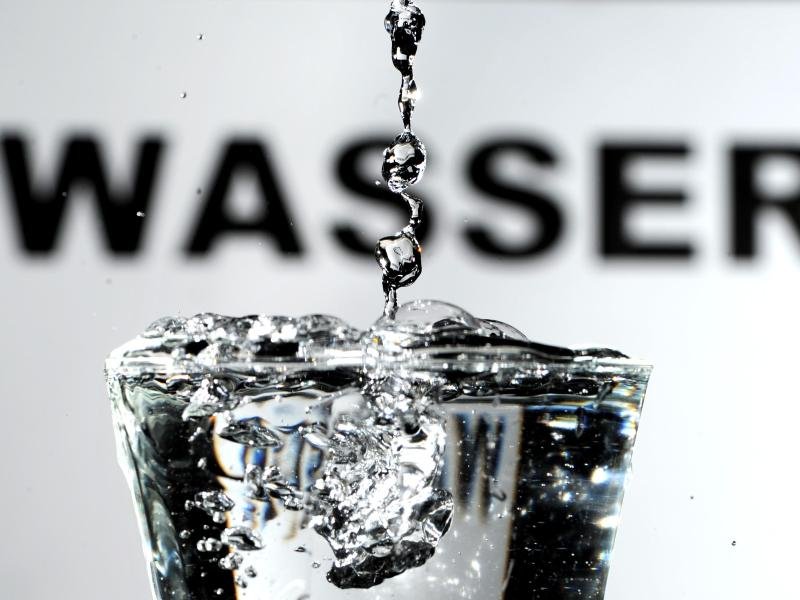The situation is dramatic: around every fourth person worldwide has no access to clean drinking water. Almost every second person, a total of 4.6 billion, cannot use suitable sanitary facilities such as washbasins or clean toilets at home. As a result, more than 800,000 people die every year. Children in particular are affected. The figures are in the current United Nations (UN) World Water Report, which will be published as part of the current World Water Conference in New York. It will be held there from March 22nd to 24th.
In terms of availability, the World Water Report can hardly report anything positive. Only 60 percent of the world‘s waters can be described as “good” in terms of quality. And even that is probably too optimistic, because there is a lack of data on the situation in the 20 poorest countries. Lakes, rivers and seas are polluted with industrial chemicals and fertilizers and pesticides from agriculture. Climate change is making the problems even worse. The UN sustainability goals of the 2030 Agenda regarding water seem almost unattainable: In the seven years that remain, the above-mentioned abuses must be remedied.
“We are far behind the target”
Dietrich Borchardt comments on the report that the results are “sobering”. He is a water expert at the Helmholtz Center for Environmental Research in Magdeburg and active in a global organization for water monitoring, the World Water Quality Assessment. “We have hardly made any progress in achieving the sustainability goals, although the agenda has been in place for a very long time and despite the urgency. We are lagging far behind the goals,” he criticizes. However, and this is gratifying, the report makes it clear for the first time that the water issue is closely related to environmental protection goals and also to social goals, such as better health care, economic growth and greater prosperity for the people.
The World Water Report therefore calls for a significant acceleration of the measures to solve the problems, including through voluntary commitments and regional and international cooperation. According to the report, the pace must be at least quadrupled in some areas in order to achieve the specified goals.
There is no life without water – but too much can be just as deadly: failed harvests, destroyed settlements, epidemics that are rampant. It is the pictures of the dried-up Po in Italy, from the Ahr Valley in 2021, from Pakistan last summer that show: The global water balance has gotten mixed up. In the new issue of MIT Technology Review (which can now be ordered from the heise shop and will be available in train station bookshops from March 23), we not only ask how this could have happened, but also how we will deal with the extremes between “too much” and “too much” in the future Having to deal with “too little” water.
Conservation is water conservation
It is important to clean water and use it more efficiently, to reduce toxic emissions, to protect nature and biodiversity that are important for the water balance – as well as wetlands, rivers, aquifers and lakes. In addition, there should be extra programs for poorer countries, which are often particularly plagued by droughts, including investments in seawater desalination and water treatment plants. Last but not least, the local communities should be strengthened in terms of water management. These are all topics at the current World Water Conference, which will present an action program at the end.
“It is important that we finally take action,” emphasizes the water expert Borchardt. The problems are sufficiently described and the necessary solutions are known. For example, it is about training specialist staff and offering well-paid jobs in the water and nature conservation sector so that the experts remain on site in the long term. This is a problem, especially in countries with politically difficult situations. “It’s no use investing in expensive hydroelectric power plants or sewage treatment plants if they end up falling apart because of a lack of skilled workers for maintenance and repairs.”
Borchardt wants an incentive system, “a kind of competition for the best solutions”. The rewards could certainly be of a financial nature, but later the benefit will show itself all by itself. “Once those responsible on site first notice how the economy and prosperity are growing if you take good care of water quality and availability, then that can definitely have a catalytic effect,” says the scientist.
A turbo in terms of water protection would undoubtedly be desirable. Especially since climate change is picking up speed and at the same time global water consumption is increasing, according to the report by around one percent every year for about 40 years. A trend that is expected to continue in the coming decades.

(jl)
